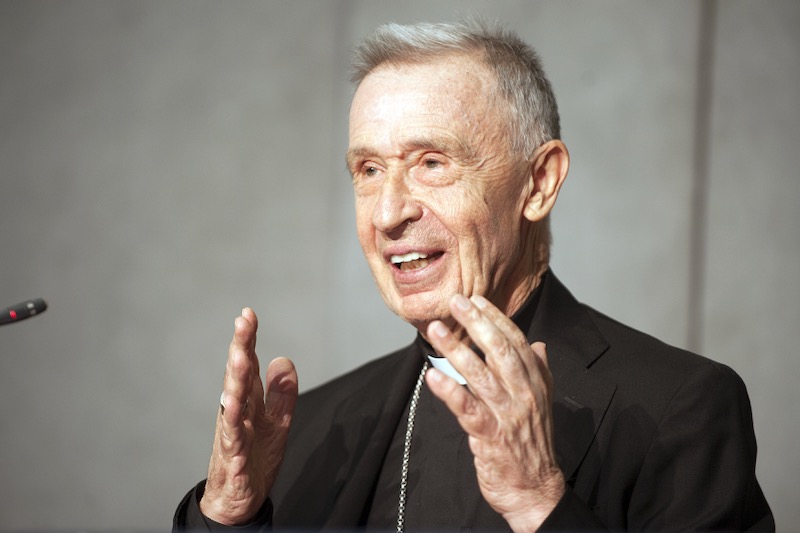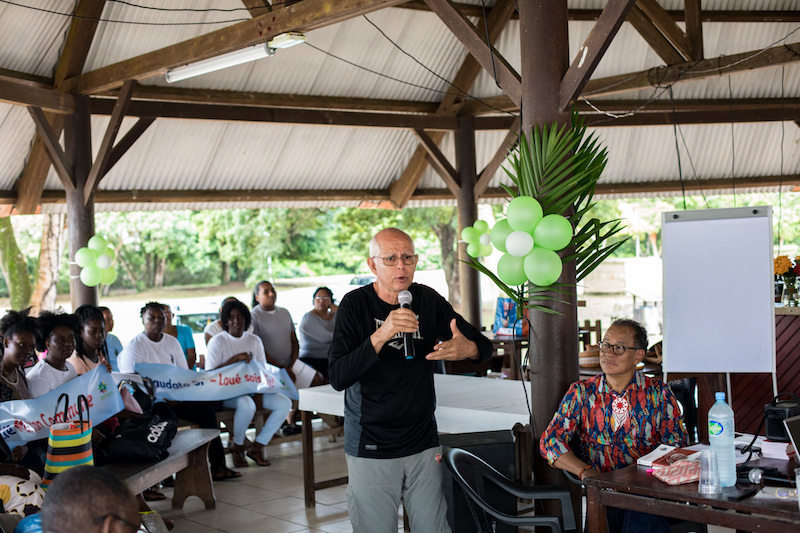The Panamazonian Church Network, known by its Spanish and Portuguese acronym REPAM, can be regarded as the motor of the Amazon synod held in Rome in 2019. As a network, it links Church communities in and across the nine countries of the Amazon region: Bolivia, Brazil, Colombia, Ecuador, French Guyana, Guyana, Peru, Suriname and Venezuela. Its work is communication and sharing of experiences, and stronger communities can support weaker ones. It was set up in 2014, and much of its first five years was devoted to preparations for the synod, including the drafting of the preparatory document.
On Monday 14 September REPAM held a virtual press conference on Zoom. The occasion was twofold, to mark the appointment of a new secretary general, the Brazilian João Gutemberg, who is taking over from the Ecuadorian Mauricio López, and also to mark the sixth anniversary of the body. The president of REPAM, Brazilian cardinal Cláudio Hummes OFM, and the vice-president, Cardinal Pedro Barreto SJ, archbishop of Huancayo in Peru, gave assessments of REPAM’s achievements so far, and the challenges that lie ahead.
Cardinal Hummes was anxious to stress that REPAM involved “masses of people”, already working where they live, “not just one more organisation, but a service. Its purpose is to listen to the people, especially the people who are usually ignored, the forest peoples and those in remote towns in midst of the rainforest, to link the various communities”. Hummes said that when he returned from Rome in 2011 he visited 38 Church communities in the Brazilian Amazon, and he said this gave him an idea of how REPAM could work, because his aim was to listen, “being in the territory, not speaking from a distance”. What gives life to this work, he said, was presence, working together, listening. The cardinal stressed Pope Francis’s strong support for the project, which he traced back to the meeting of the Latin American bishops at Aparecida in 2007, where the then Cardinal Bergoglio chaired the committee that wrote the final document. Then he returned to Brazil as Pope in 2013. “He even allows us to make mistakes,” said Hummes; they can be corrected. “Be bold. Don’t be afraid,” is the message. “The Pope always says this.”
The work of REPAM had led to the synod on the Amazon region, held in Rome in October 2019. The Pope wanted “new directions”, said Cardinal Hummes, “not just reforms”, and this was still fundamental today. The synod, and the final document, Beloved Amazonia, were the high point of REPAM’s existence so far. And we have to apply the document. The Pope had offered us dreams, said the cardinal, to go beyond the everyday. “If we stop dreaming, we lose hope.”
Cardinal Pedro Barreto, archbishop of Huancayo in Peru, said it had been “a very great grace” to have been involved in this process. “REPAM brings together all that is being done in Amazonia, and everything that has been done over the last 500 years. This presence of the Church throughout Amazonia was very important in Aparecida: but we need to create “a comprehensive pastoral approach for Amazonia, to bring together all the scattered experiences.” The Amazon synod had been “a great gift of God to the Church”. There had been a two-way movement. “The pope in visiting Puerto Maldonado in the Peruvian Amazon had represented the whole Church, and the synod had brought the edges to the centre in Rome.” This embrace by the Pope, said the cardinal, “meant a very important commitment to continue accompanying Amazonia and the native peoples. They are the guardians of their natural environment They are examples to us of care for the rainforest.”
But the invasion of the region by mining and oil companies meant a struggle that has resulted in “martyrdom and murder”, said Cardinal Barreto, mentioning as the most recent example the murder in Puerto Maldonado earlier in September of the environmental activist Roberto Carlos Pacheco.
“The indigenous people preach to us with their lives and their witness.” REPAM, he said “will be a support on the ground for the new bishops conference. The network has to work in two ways, to put into practice the ideas of Beloved Amazonia, but also to go on dreaming about an Amazonia in which there is respect for human rights, cultures and the environment, where the Church can be a leaven of peace and justice.”
The press conference was also addressed by the new executive secretary of REPAM, João Gutemberg, a Brazilian born in Amazonia and introduced as “son and grandson of rubber-tappers”. Gutemberg described his involvement in the creation of REPAM, and said: “I shall be merely an instrument of connection. “Becoming Amazonian” – the new PEPAM slogan - means adopting as a model the care of the peoples of the Amazon for the rainforest” Gutemberg was also enthusiastic about the response of young people to REPAM, connecting through social media during the pandemic to form a “Young REPAM”.
Finally Cardinal Hummes described the Ecclesial Conference of Amazonia, CEAMA, intended to be “an episcopal organisation with a greater synodal dimension, much more inclusive, broader, priests, religious laity, members, not just listeners, but really members.” If there are two fields of REPAM work, practical and dreams, listeners were left with the distinct impression that CEAMA for the moment is still in the dream-world, as the cardinal said that Vatican official have not yet worked out its canonical description, its “statutes”. Nevertheless practical work comes first: “We have to start by meeting, even though the statutes haven’t been finalised. But the Pope has said we should get on with the work. This is the great novelty of the process, without lots of bureaucracy, very simple, down to earth.”



 Loading ...
Loading ...